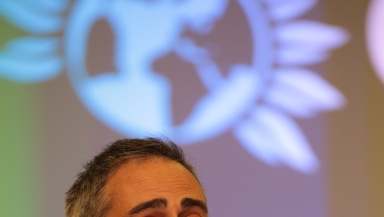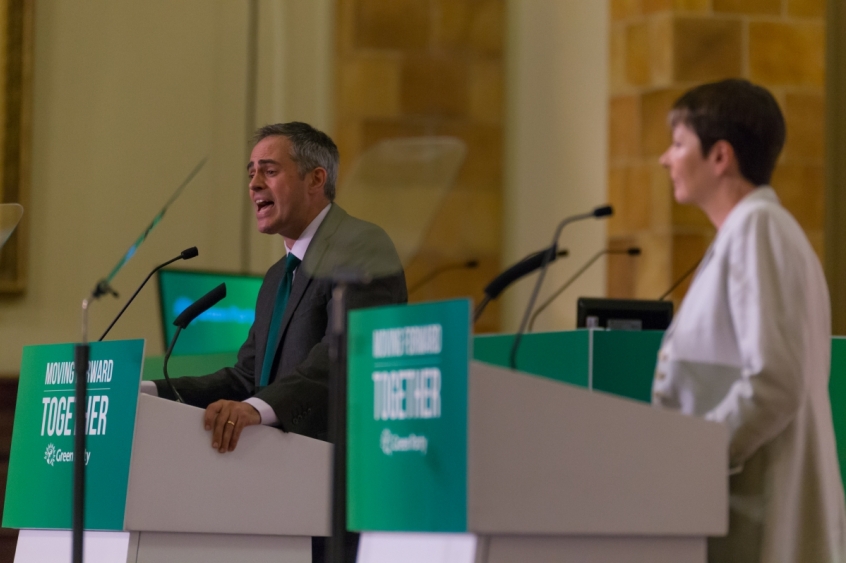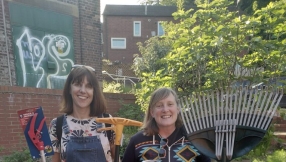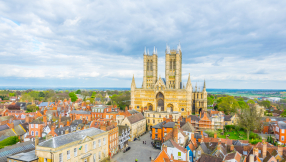The path Jonathan Bartley has travelled is more dramatic than most political party leaders can claim.

The new co-leader of the Greens, alongside the party's sole MP Caroline Lucas, was a strong favourite before the result was announced on Friday afternoon. And the pair duly secured nearly 90 per cent of the 15,467 votes cast.
But not many Green party members can claim the dubious honour of being a former Conservative party leader's aide.
In 2005 Bartley worked for John Major during a Tory leadership race, a role he is unsurprisingly quick to play down. "...That was very, very early on," he says in an interview with Christian Today, shortly after the result was announced.
The journey from Tory aide to Green Party leader is not the only dramatic change Bartley has undergone.
A Christian, Bartley says his ancestors' Quakerism is now "what I find most affinity with". He set up Ekklesia, a Christian think tank with a strong commitment to "social justice, nonviolence, environmental responsibility [and] nonconformist styles of Christianity".
But Bartley was baptised into the Church of England. He taught in a Sunday school and sat on the Church of England's Evangelical Council.
These days he says having bishops in the House of Lords is "unChristian", is pro-disestablishment and doesn't "believe in the privileging of religion in any shape or form".
He is a longstanding supporter of same-sex marriage and wishes the CofE "were more progressive". He says: "I wish they were bolder. I would encourage them in the way they are heading but for me it's too slow."
He is his most passionate when talking about climate change. "I don't understand those who say they are religious but don't feel the climate crisis is something to be urgently tackled.
"Care for the planet seems to be a no brainer for me."
And he is scathing about his former political party. "In the Conservatives essentially you have competition. In Labour you have conflict. In the Green party you have co-operation.
"I see conflict and competition as generally negative. When you are someone with a disability or someone who is older. Or just someone who is not in the prime of life and very strong. Then you lose out in competition.
"To me it is very much the bias towards those who need support and those we are called to stand up for that is what the Green party embodies."
It is the issue of disability that is crucial to understanding Bartley's story. His 14-year-old son has spina bifida and uses a wheelchair. Bartley told Christian Today his birth was a "pivotal" moment.

"I started to see the world in a very different way," he said. "I saw all the barriers that are put up to people who are disabled and I took a long hard look at all the different parties.
"I realised the Green party embodied the values of the bias to the poor, the bias to the vulnerable and standing up for the voiceless which are the themes that run through the Hebrew scriptures and the New Testament.
"They embody the character of Jesus and the character of God."
He went on: "My faith is still what drives my politics. I have always been driven by that.
"I have always been driven by the desire to make the world a better place. To make it more as it was intended to be."
He describes an early Christian apologetic, the letter from Mathetes, a Church teacher, to Diognetus, a pagan. "It is not a set of doctrines but a set of the way Christians behaved," said Bartley. "The early Christians described themselves as living The Way. It was described they shared a common table. They displayed a form of their own citizenship.
"For me faith is not just a set of doctrines or tickboxes. The bottom line is are you living the way Jesus called you to."
And the Green party, says Bartley, is "the natural expression" of this.













